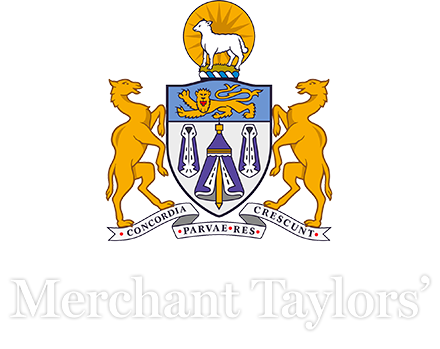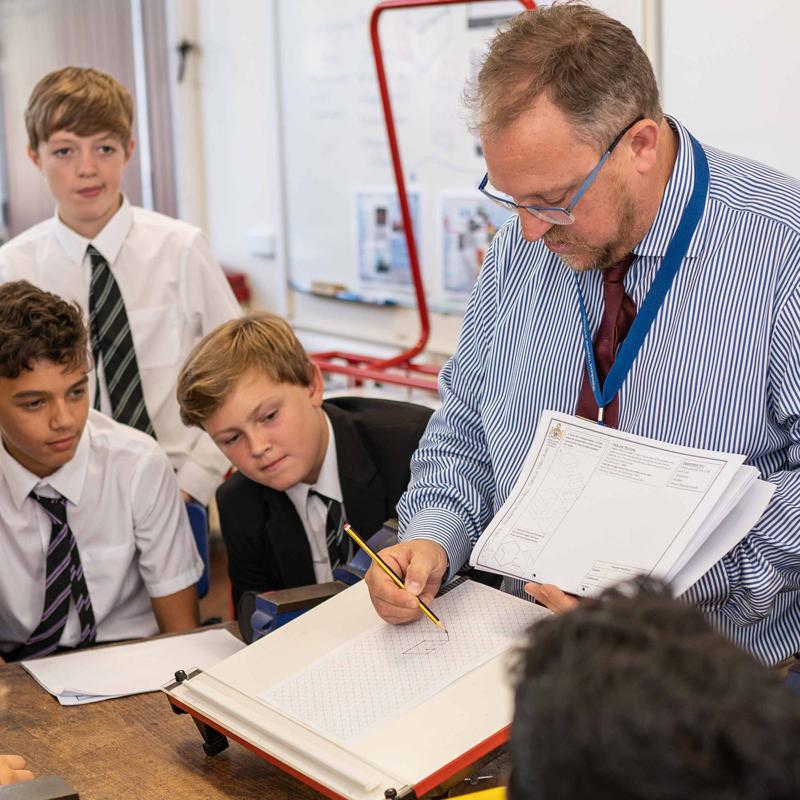Religion, Philosophy and Ethics
Religion, Philosophy and Ethics is offered from Year 7 until Year 13. Compulsory in Year 7 and Year 8, the subject can be explored further as an option from Year 9.
Pupils are given the opportunity to explore a range of questions of philosophical and ethical importance, and develop the essential skills of essay-writing, constructing a balanced argument, and justifying opinions.
Lower School
The lower school Religion, Philosophy and Ethics curriculum begins with a development of critical thinking skills in Year 7: assessing arguments, justifying beliefs, and reaching conclusions.
Across Year 7 and 8, pupils explore many topics of religious, philosophical, and ethical importance, such as:
• The Existence of God
• What is Religion?
• Christianity and Islam
• New Religious Movements
• Ethical theories
• Practical Ethics
• The Problem of Evil
Pupils are then able to select RPE as a subject in Year 9, in which they explore elements of Religion, Philosophy and Ethics further, including a consideration of more philosophical questions such as knowledge of the external world. This course provides an excellent basis for thinking skills, debating and logic.
GCSE
In Religion, Philosophy and Ethics, pupils will follow the Religious Studies AQA Specification A syllabus and build on ideas, skills and understanding developed throughout the Lower School.
It is open to pupils of all faiths or none, since the curriculum covers many issues and ultimate questions relevant to everybody. By engaging with these ideas, pupils will mature in their own views and learn to respect the views of others. GCSE RPE also offers the opportunity to cultivate important study skills as pupils write essays, develop reasoned arguments, and express their own opinions whilst researching great philosophies of the past.
The specification is split into two parts and each is examined with a 1¾ hour exam after two years. The first part involves studying the beliefs and practices of two major world religions: Islam and Christianity. The second paper focuses more on philosophy and ethics and we will study four themes from a possible six.
Those themes are:
– Relationships and Families
– Religion and Life
– The Existence of God and Revelation
– Religion, Peace and Conflict
– Religion Crime and Punishment
– Religion, human rights and social justice
RPE is a great subject for those pupils who want to study something a little different, continue conversations from the Lower School, or develop their own philosophical tendencies.
A Level
At A Level, the department follows the OCR syllabus in Religious Studies. The specification is an intellectually demanding and academic course and compliments both Science and Arts based subject choices.
The course is open to both those who have studied RPE at GCSE, and those who have not. It comprises three papers which are studied in both the Lower and Upper Sixth.
Each examination paper is two hours and requires pupils to answer three essay questions from a choice of four. Each essay question is marked out of 40.
• Paper 1: Philosophy of Religion – topics include arguments about the existence or non-existence of God, the nature and impact of religious experience and the challenge for religious belief of the problem of evil.
• Paper 2: Religion and ethics – topics include normative ethical theories, the application of ethical theory to euthanasia and business ethics and the influence of ethical and religious thought on sexual ethics.
• Paper 3: Developments in Religious thought – topics include beliefs about death and the after-life, Christian moral principles and action, gender and society and the challenge of secularism.
A range of extension and enrichment activities are offered to help students develop their analytical skills, while the department has an extensive library of books and articles for wider reading. The department has brought in guest lecturers and taken pupils to conferences aimed at A Level RPE pupils.




